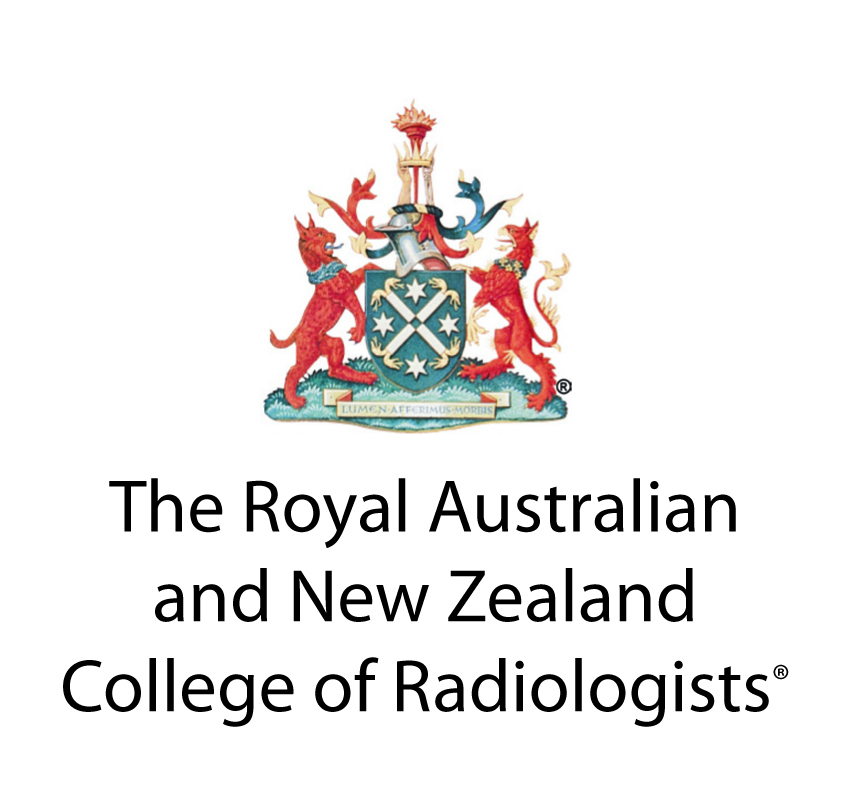The Royal Australian and New Zealand College of Radiologists
Recommendations from the Royal Australian and New Zealand College of Radiologists on early-stage breast cancer, low risk prostate cancer, palliation of bone metastases, and brain metastases. The Royal Australian and New Zealand College of Radiologists (RANZCR) is a not-for-profit association of members who deliver skills, knowledge, insight, time and commitments to promote the science and practice of the medical specialties of clinical radiology (diagnostic and interventional) and radiation oncology in Australia and New Zealand.

7.
Don’t initiate whole-breast radiation therapy as a part of breast conservation therapy in women age ≥50 years with early-stage invasive breast cancer without considering shorter treatment schedules.
Whole-breast radiation therapy decreases local recurrence and improves survival of women with invasive breast cancer treated with breast conservation therapy. Most studies have utilised "conventionally fractionated" schedules that deliver therapy over 5-6 weeks, often followed by 1-2 weeks of boost therapy. Recent studies, however, have demonstrated equivalent tumour control and cosmetic outcome in specific patient populations with shorter courses of therapy (∼4 weeks). Patients and their physicians should review these options to determine the most appropriate course of therapy.
Supporting evidence
- Clarke M, Collins R, Darby S, et al. Effects of radiotherapy and of differences in the extent of surgery for early breast cancer on local recurrence and 15- year survival: an overview of the randomised trials. Lancet. 2005; 366(9503):2087-2106.
- Smith BD, Bentzen SM, Correa CR, et al. Fractionation for Whole Breast Irradiation: An American Society for Radiation Oncology (ASTRO) Evidence-Based Guideline. Int J Radiation Oncology Biol Phys. 2011;81(1):59-68.
- Early Breast Cancer Trialists’ Collaborative Group (EBCTCG), Darby S, McGale P, et al. Effect of radiotherapy after breast-conserving surgery on 10- year recurrence and 15-year breast cancer death: meta-analysis of individual patient data for 10,801 women in 17 randomised trials. Lancet. 2011;378(9804):1707-1716.
Clinical radiology recommendations 1-6 (April 2015)
A team of five Lead Radiologists were nominated to guide RANZCR's Choosing Wisely contribution. These Lead Radiologists analysed previous work completed by RANZCR, in particular a series of Education Modules for Appropriate Imaging Referrals.
These modules had been developed from an extensive evidence base and with multiple stakeholder input. Using the evidence from the Education Modules, the Lead Radiologists developed a draft recommendations list, which was then further developed and endorsed by RANZCR's Quality and Safety Committee, before being circulated to the RANZCR membership for consultation with a request for alternative recommendations. Member feedback was reviewed by the Lead Radiologists prior to ratification of the final recommendations by the Faculty of Clinical Radiology Council. The final six items selected were those that were felt to meet the goals of Choosing Wisely, i.e. those which are frequently requested or which might expose patients to unnecessary radiation.
Due to the fundamental role of diagnostic imaging in supporting diagnosis across the healthcare system, RANZCR worked closely with other Colleges throughout the project via the Advisory Panel. Following identification of two common recommendations with the Australasian College for Emergency Medicine, it was agreed by both Colleges to present these items jointly.
Radiation oncology recommendations 7-10 (September 2021)
Recommendations relating to radiation oncology from the Choosing Wisely and Choosing Wisely Canada were circulated around the Faculty of Radiation Oncology Council to determine which recommendations were applicable to the Australian and New Zealand context. The selected recommendations were then put to the Quality Improvement and Economics and Workforce Committees, with each being asked to rank the recommendations. The five highest ranked recommendations were then put to the radiation oncology membership for consultation prior to being formally approved by the Faculty of Radiation Oncology Council. Recommendations 7-10 are adapted from the American Society for Radiation Oncology (ASTRO) 2013 and 2014 lists. Recommendation 11 is adapted from Choosing Wisely Canada’s Oncology list. Each organisation was approached for—and subsequently granted—approval to adapt these recommendations as part of the Choosing Wisely Australia campaign.
This initial list has now been reviewed with recommendations 7, 8 & 10 remaining unchanged, recommendation 9 has been updated based on the advice of the Faculty of Radiation Oncology Quality Improvement Committee and Recommendation 11 has been replaced based on the feedback of the Quality Improvement Committee and the Policy and Advocacy team.
- 1 Don’t request imaging for acute ankle trauma unless indicated by the Ottawa Ankle Rules (localised bone tenderness or inability to weight-bear as defined in the Rules).
- 2 Don’t request duplex compression ultrasound for suspected lower limb deep venous thrombosis in ambulatory outpatients unless the Wells Score (deep venous thrombosis risk assessment score) is greater than 2, OR if less than 2, D dimer assay is positive.
-
3
Don’t request any diagnostic testing for suspected pulmonary embolism (PE) unless indicated by Wells Score (or Charlotte Rule) followed by PE Rule-out Criteria (in patients not pregnant). Low risk patients in whom diagnostic testing is indicated should have PE excluded by a negative D dimer, not imaging.
- 4 Don't perform imaging for patients with non-specific acute low back pain and no indicators of a serious cause for low back pain.
- 5 Don't request imaging of the cervical spine in trauma patients, unless indicated by a validated clinical decision rule.
- 6 Don’t request computed tomography (CT) head scans in patients with a head injury, unless indicated by a validated clinical decision rule.
- 7 Don’t initiate whole-breast radiation therapy as a part of breast conservation therapy in women age ≥50 years with early-stage invasive breast cancer without considering shorter treatment schedules.
- 8 Don’t initiate management of low risk prostate cancer without discussing active surveillance.
- 9 Don’t routinely use more than one fraction for palliation of non-complex bone metastases.
- 10 Don't routinely add adjuvant whole-brain radiation therapy to stereotactic radiosurgery for limited brain metastases.
- 11 Do not proceed with any treatment for localised prostate cancer unless the man has been offered a consultation with a urologist and a radiation oncologist, and taken time to consider the advantages and disadvantages of each treatment option.